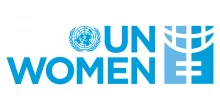Data is power. It can help us understand problems and uncover solutions.
In a world of growing inequalities and intersecting forms of discrimination, there is a big responsibility in the data we choose to collect. National statistical systems suffer practical constraints in the amount and type of data they can collect within the required time period. Filling data gaps requires amongst others interventions, empowering non-traditional data producers and developing their capacity to produce high quality data that can be trusted.
Citizen/Community-Generated Data (CGD) is data that people, or organisations produce to monitor or drive change on issues that affect them. Using this data can provide access to detailed, localised information and empower civil society organisations (CSOs) to actively engage in monitoring of issues that affect their lives.
CGD is key to complement official statistics and it can help uncover locally rooted drivers for exclusion and marginalisation. The CGD processes mirror the Human Rights Based Approach (HRBA) to Data and can create a unique channel for state actors to directly engage with citizens, helping to retrieve and use their feedback to improve policies and services.
CGD processes can benefit from the specialised knowledge of communities, human rights experts, statisticians, governments and others to create a dynamic and inclusive ecosystem of data.
In the framework of SDG 17 (partnerships for sustainable development) as well as the HRBA to data, the organisers of this session are joining forces to promote the development of a global framework for collaboration between NSOs, CSOs and other producers of CGD for inclusive data ecosystems and citizen-driven reporting for the SDGs to inform public policy.
This will be a hands-on session where speakers and participants from across sectors will discuss and find agreements on issues which can support them in harnessing data by citizens, for citizens, and about citizens. A draft paper jointly developed by the organisers will be shared with speakers and participants in advance to enable their qualified inputs.
There will be a mix of short interventions from in-person speakers, videos, and small group discussions on selected topics aimed at enriching the paper with participants’ perspectives and experiences. Finally, the event will launch a “Collaborative” to advance this agenda and will highlight capacity development needs and priorities to enable plural data ecosystems to flourish.
Organiser(s): Danish Institute for Human Rights (DIHR); United Nations Statistics Division (UNSD-DESA); UN Women; World Bank (WB); International Civil Society Centre (ICSC); PARIS21; GPSDD.
Speakers: Francesca Perucci; Fridah Githuku; Haishan Fu; Linh Phuong Nguyen; Macdonald Obudho; Raymund John Rosuelo; Zerihun Lemma Damenu.

